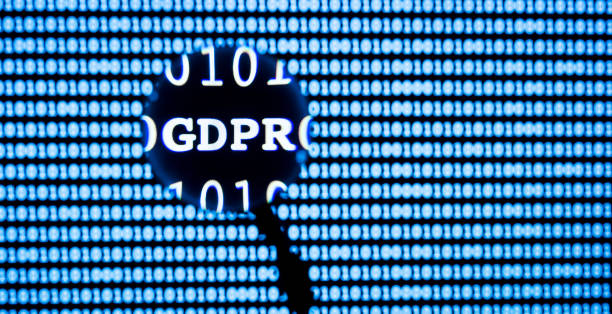Ensuring GDPR Compliance in the Digital Age: The Role of E-Contracts

Introduction
In the digital age, electronic contracts have become increasingly prevalent. With their convenience and efficiency, e-contracts have revolutionised the way businesses conduct transaction and exchange agreements. But with the digital transformation, the need for ensuring compliance with data protection regulations arises and as such the General Data Protection Regulation (GDPR).
This article explores e-contracts and talks about how they comply with GDPR regulations. We aim to provide you with a comprehensive understanding of the compliance requirements and best practices for e-contracts in the context of GDPR.
How E Contracts Comply with GDPR Regulations
Digital contracts have become widespread in many industries, making things more efficient and reducing the need for physical documents. But because these contracts often involve personal information, it’s really important to follow the rules set by GDPR. Let’s take a closer look at the important things to think about and the actions to take to make sure e contracts meet the requirements of GDPR.
1. Understanding the GDPR Framework
To learn how e contracts follow the rules of GDPR, it’s important to understand the basic ideas and structure outlined by GDPR. This law protects people’s personal information in the EU and EEA. It aims to keep individuals rights and privacy safe and makes organisations that gather, handle, or keep personal data follow certain rules.
2. Applicability of GDPR to E-Contracts
The GDPR rules apply to online agreements when information about people from the EU or European Economic Area is involved. Whether it’s collecting personal details while making the agreement or using the data later on, companies need to follow the GDPR rules. This means getting proper permission, using good security to protect the information and respecting people’s rights over their personal data.
3. Obtaining Informed Consent
The GDPR rules dictate organisations to get permission from people before they collect and use their personal information. When it comes to online contracts, organisations have to make sure that people understand how their information will be used and give them a clear and straightforward way to agree to the contract and the use of their personal data. Thus might involve using checkboxes or electronic signatures that clearly show that the persian agrees to the contract and how their information will be used.
4. Safeguarding Data Security
Keeping data safe is extremely important when it comes to online contracts and following the rules of GDPR. companies need to have strong security measures in place to keep personal data from being seen, lost or changed by unauthorised people. Using encryption, safe storage systems, and access controls are some ways to protect the data that’s sent and stored in online contracts.
By using these security practices, companies can reduce the chances of data leaks and make sure they’re meeting their obligations under GDPR.
5. Transparency and Privacy Notices
Being transparent is really important while using GDPR. If a company is using E contracts, they need to give people clear and simple explanations about how their personal information will be used, handled and shared.
These explanations should be easy to find, and written in a way that regular people can understand. This helps people make proper choices with their information.
6. Data Minimization and Purpose Limitation
In order to follow the GDPR rules for E contracts, it’s important to keep data collection and usage in check. Organisations should only gather personal information they really need to complete the contract. They can’t use the data anywhere else unless the parties involved agree to it.
By sticking to these guidelines, organisations can lower chances of breaking rules and also safeguard people’s privacy.

FAQs About E-Contracts and GDPR Compliance
To further enhance your understanding of how e-contracts comply with GDPR regulations, let’s address some frequently asked questions on this topic.
1: Are e-contracts legally valid under GDPR regulations?
Yes, e-contracts are legally valid under GDPR regulations. The GDPR does not distinguish between paper-based contracts and electronic contracts when it comes to their legal validity. As long as e-contracts fulfil the necessary requirements, such as valid consent, meeting the principles of GDPR, and complying with applicable laws, they are legally binding.
2: Can e-contracts be used for cross-border transactions within the EU?
Absolutely! E-contracts are particularly beneficial for cross-border transactions within the EU. They enable seamless communication, eliminate geographical barriers, and expedite the contracting process. However, organisations must ensure that they comply with GDPR regulations, as the personal data involved in these transactions falls under the purview of the GDPR.
3: What measures should organisations take to ensure GDPR compliance in e-contracts?
Organisations can take several measures to ensure GDPR compliance in e-contracts. Firstly, they should implement robust data protection measures, such as encryption and access controls, to safeguard personal data. Secondly, obtaining informed consent from individuals and providing transparent privacy notices are vital. Additionally, organisations should adopt a data minimization approach and adhere to the principle of purpose limitation when collecting and processing personal data in e-contracts.
4: What are the consequences of non-compliance with GDPR regulations in e-contracts?
Non-compliance with GDPR regulations in e-contracts can lead to severe consequences for organisations. These consequences may include hefty fines, reputational damage, legal liabilities, and loss of customer trust. Therefore, it is crucial for organisations to prioritise GDPR compliance in their e-contracting processes to avoid such adverse outcomes.
5: Are there any specific guidelines or resources available for e-contracts and GDPR compliance?
Yes, several resources and guidelines are available to assist organisations in ensuring e-contracts comply with GDPR regulations. The European Data Protection Board (EDPB) provides guidance and recommendations on various aspects of GDPR compliance, including e-contracts. Additionally, consulting with legal experts specialising in data protection and privacy laws can provide valuable insights and guidance tailored to an organisation’s specific needs.
6: How can organisations effectively manage and retain e-contract data while complying with GDPR requirements?
Organisations can effectively manage and retain e-contract data while complying with GDPR requirements by implementing secure and structured data storage systems. They should establish clear data retention policies that align with the purpose of the contract and legal obligations. By adopting these measures, organisations can ensure GDPR compliance while efficiently managing e-contract data throughout its lifecycle.
Conclusion
When E-contracts and GDPR rules come together, it brings both the advantages and difficulties for companies in the online world. By understanding the important factors and approaches mentioned, businesses can handle this situation with certainty. Making sure that e-contracts follow GDPR rules not only safeguards people’s privacy rights, but also protects organisations from legal and reputation-related dangers. As the online economy keeps growing, it becomes very important to give priority to data protection principles in e-contracts in order to build trust and maintain transparency.
